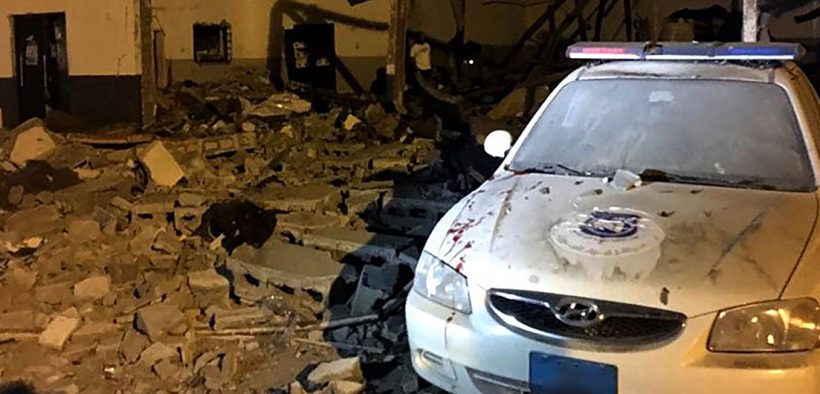Dozens Dead After Immigrant Camp Bombed in Tripoli, Libyan Civil War Intensifies

“The latest air strike could constitute a war crime that has caused hideous and most tragic deaths.”
At least 44 civilians including women and children, believed to be African migrants, were reportedly killed and more than 120 others wounded after an immigrant camp in Tajoura, Libya (a southern suburb of Tripoli) was bombed by forces the Libyan government says are loyal to General Khalifa Haftar. However, Haftar claims his Libyan National Army had no role in the attack.
Terrible Tragedy
The death toll is expected to rise due to the presence of hundreds of migrants in the targeted concentration camp, which is one of a series of such camps in the Libyan capital. According to the U.N., over 3,300 such migrants are “arbitrarily detained” in and around Tripoli.
Physicians without Frontiers, or Médecins Sans Frontières, described the killing of civilians as “a terrible tragedy that could easily have been avoided.”
Michele Bachelet, the UN High Commissioner for Human Rights, and the United Nations envoy to Libya, Ghassan Salamé, both said that the bombing in southern Tripoli early on Wednesday could constitute a war crime.
#Libya: UN Human Rights Chief @mbachelet is shocked by the number of migrants & refugees left dead and injured after a detention centre was hit by an airstrike. Read ? https://t.co/DCXjyW7DFH pic.twitter.com/b1pNCtzUUn
— UN Human Rights (@UNHumanRights) July 3, 2019
“This attack clearly could constitute a war crime, as it killed by surprise innocent people whose dire conditions forced them to be in that shelter.
“The absurdity of this ongoing war today has led this odious bloody carnage to its most hideous and most tragic consequences,” said Salamé, calling upon the international community “to denounce this crime and apply appropriate penalties on those who ordered, carried out and provided arms for this operation in a flagrant violation to the international humanitarian law and the simplest humanitarian norms and values.”
The African Union called for a probe into who is responsible for the air strike, while the United Nations expressed deep concern over the civilian deaths of migrants, most of whom were believed to be trying to travel from sub-Saharan Africa into Europe.
Trading Blame
In response to the air strike, the U.N.-backed consensus government of Libya blamed the National Libyan Army (LNA) commanded by former army general Khalifa Hafter, for carrying out the deadly airstrike.
Haftar’s forces claimed no responsibility for the air raid and accused the U.N.-backed government of Libya of perpetrating the killing. The bombing came just days after Haftar’s warplanes attacked parts of Tripoli on Monday.
According to the Guardian, the commander of LNA’s air force ops room, Maj Gen Mohamed Manfour, had warned on Monday of “exhausting all traditional means” to capture Tripoli, LNA will conduct “strong and decisive airstrikes” against select targets.
Migration and a Battle for Tripoli
Over the past five years, as a civil war worsened conditions in Libya, several immigrant camps for African and Arab migrants seeking refuge in Europe have been erected across the country, but mainly in Tripoli.
Libya, sitting on the north African coast, has become a major migration route for refugees seeking to cross into nearby European countries.
Since April, Haftar’s L.N.A. has been involved in air and ground attacks on government forces in Tripoli, as the two sides battle for control of the capital.
The U.N.-recognized government in Tripoli is the official legal authority of Libya, but it lacks real control over the country, as the L.N.A. has rapidly consolidated power over the country’s oil fields and eastern region.
Libya’s civil war started in 2001 when Libyan crowds took to the streets in protest of the rule of Libya’s former president, Muammar Gaddafi. Gaddafi remained in power for four decades before he was assassinated in October 2011.
According to the World Health Organization, intensified airstrikes and heavy shelling in and around Tripoli have displaced at least 104,000 people.















